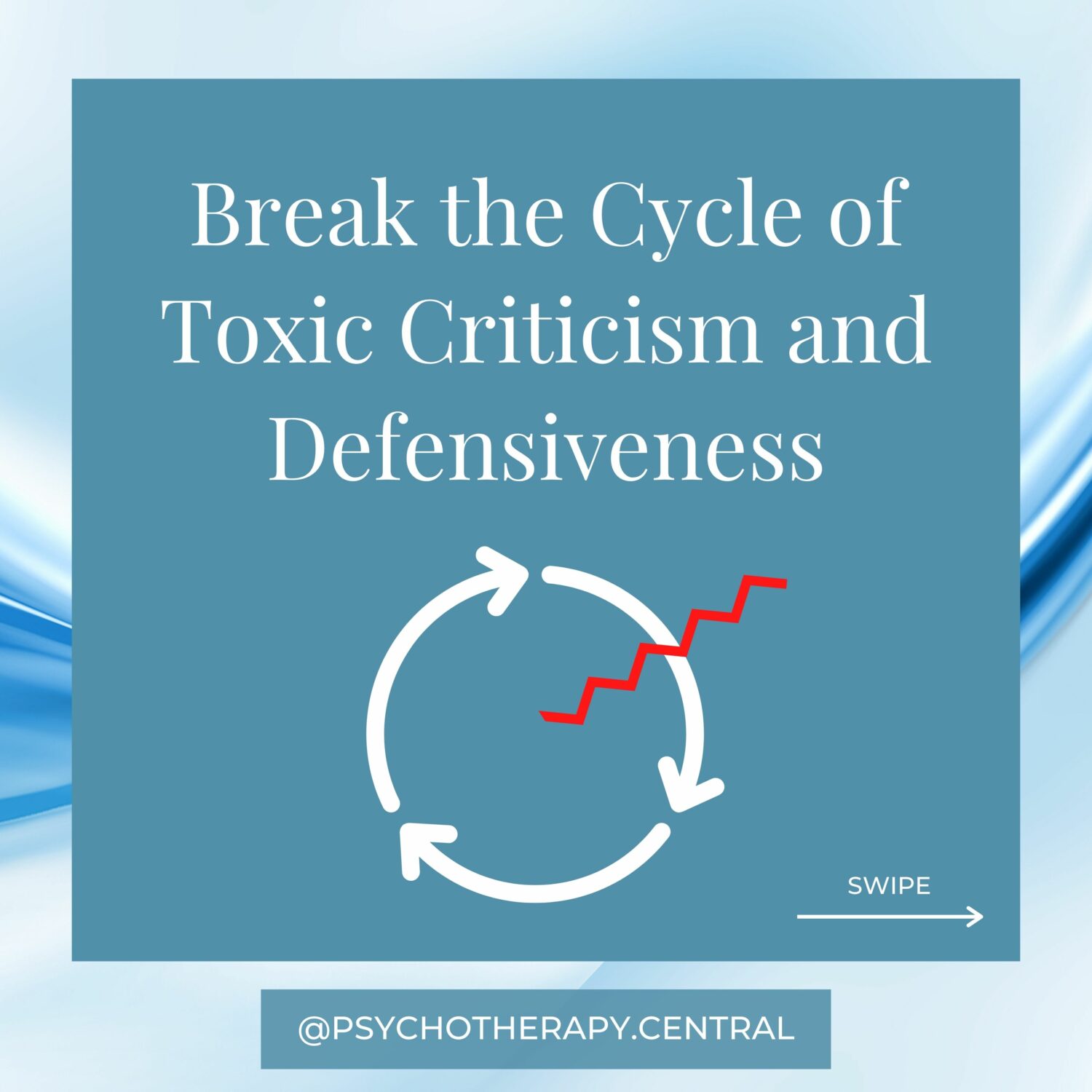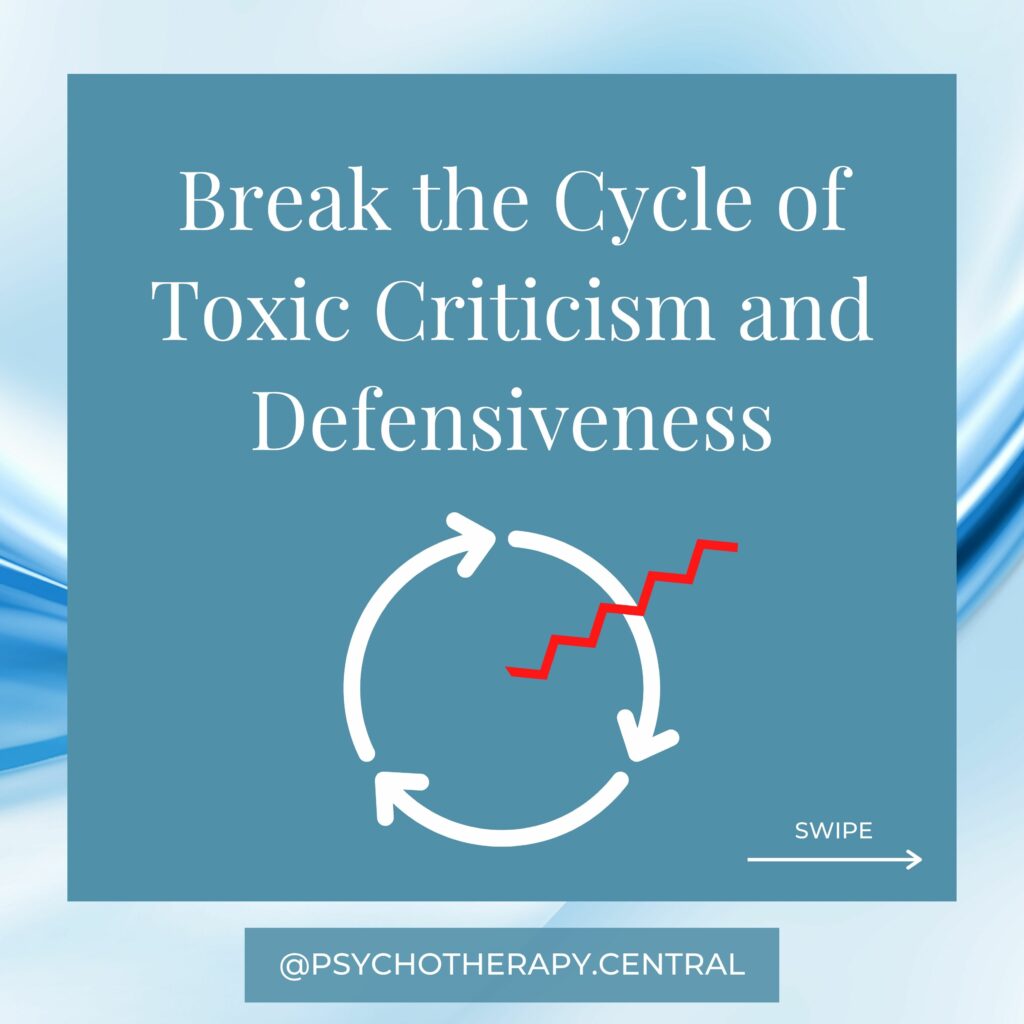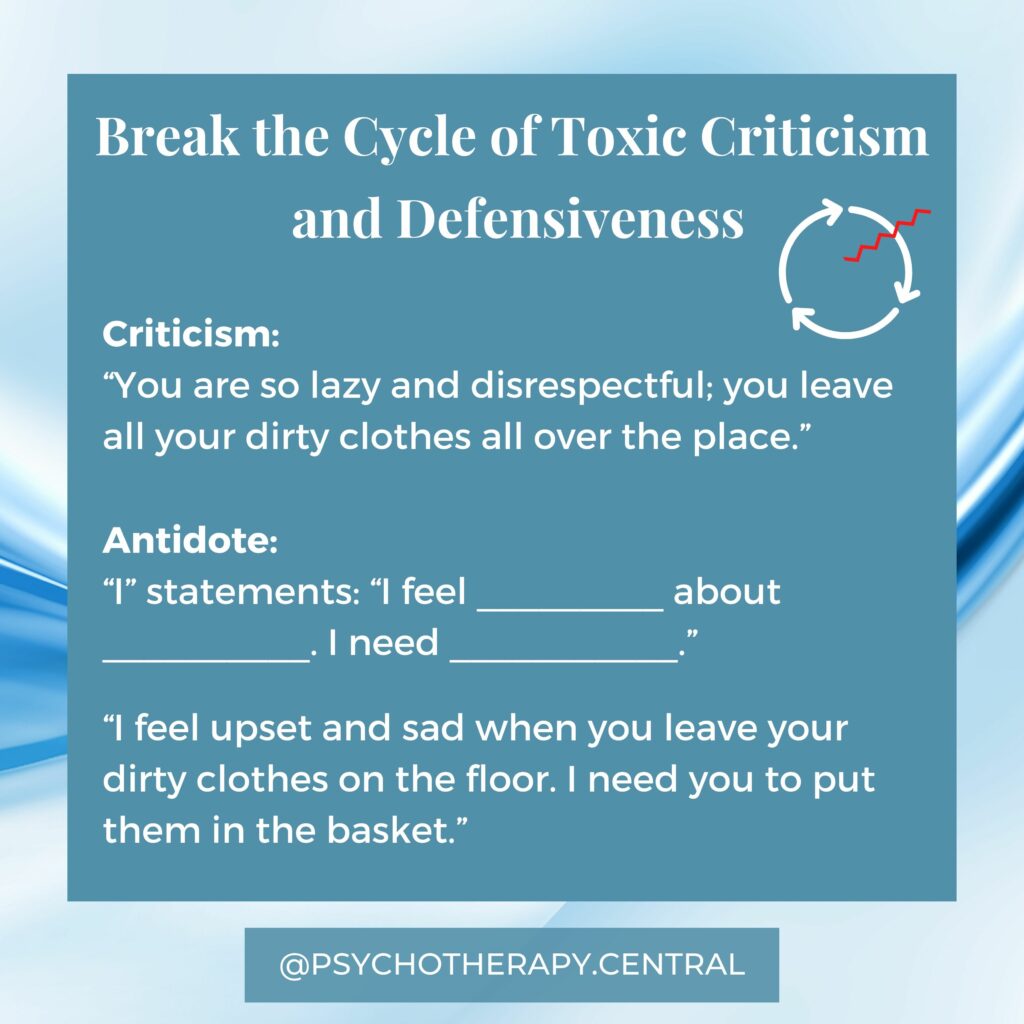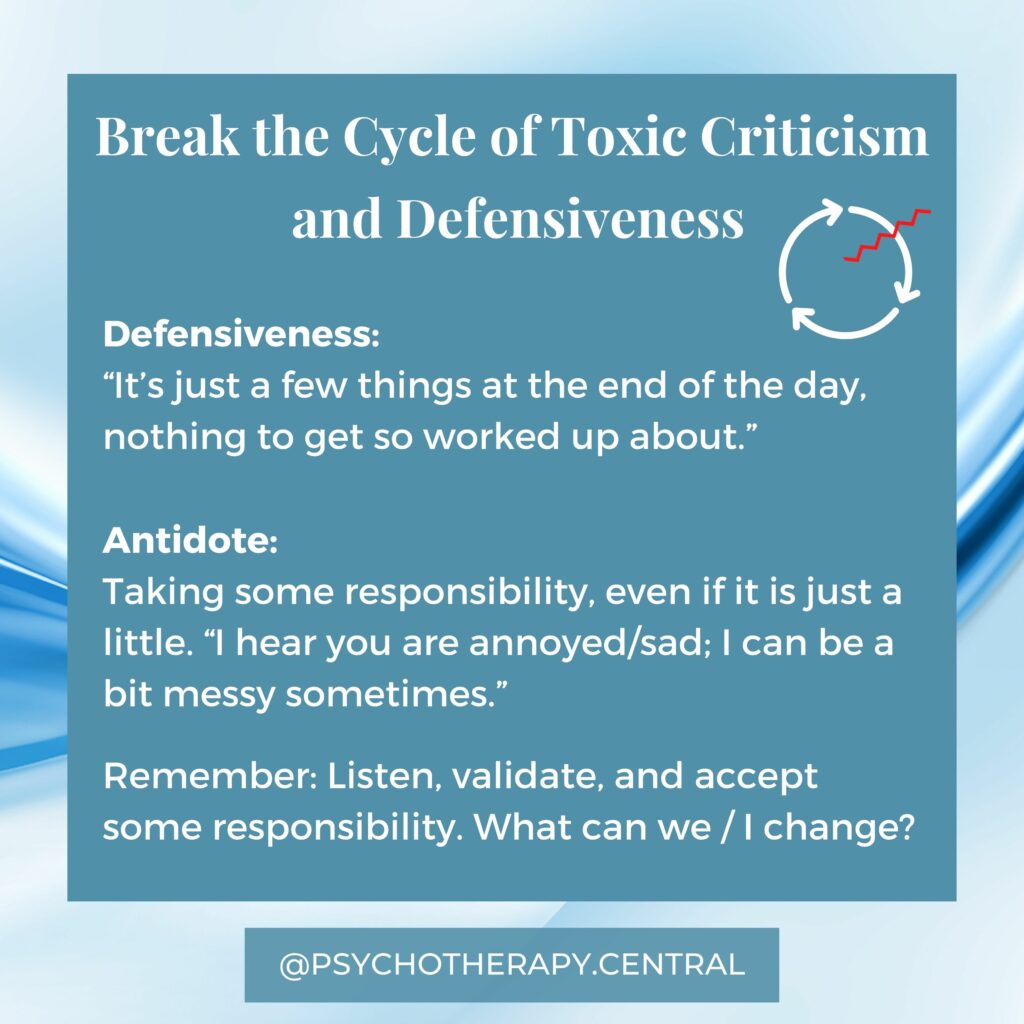When someone comes at you with criticism, the natural response is to defend. Criticism is a form of attack, so it is natural to protect instinctively unless you know how criticism and defensiveness play out in a relationship.
Those of you who struggle with criticism, remember not to use phrases that attack a person’s character, like “you are so lazy, bossy, arrogant, etc.” When we want to give a complaint, and the sentence starts with ‘You’, it is easy to go wrong; “You are never home on time, you never keep your word”. When we begin a sentence with “I”, it is easier to deliver a complaint rather than a criticism; “I feel sad and unloved when you forget to call and tell me you will be late home” vs “You are so arrogant; you think you can do whatever you like.”
When we can deliver an “I” statement that is a complaint instead of a criticism starting with “You”, the conversation is likely to go better. Don’t take my word for it; try it out.
When we are being criticised, defensiveness is a natural response. We hear “yes, but…” we make excuses, and we try to explain it all away. This results in the person with the complaint not feeling listened to or validated. If defensiveness is your go-to place, start to shift this using active listening.
- Active listening: Listen to the message that is being delivered to you; even if it is harsh, what is it that they are trying to tell you?
- What parts of this can I validate?
- What parts of this CAN I take responsibility for?
- What might I do differently moving forward?
Changing communication patterns takes time, and if you are both aware of the pattern, it can be easier to change. For example, if you have a partner who is often defensive, you might say, “I feel that your defenses are up. Are you feeling attacked by me?
This might break the criticism and defensiveness cycle and lead you toward more effective communication.
Reference: Gottman research: “The Seven Principles for Making Marriage Work” (1999).







